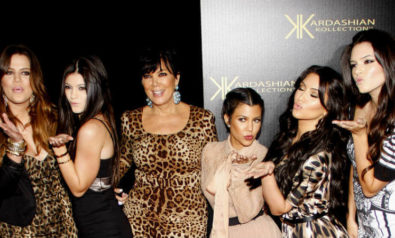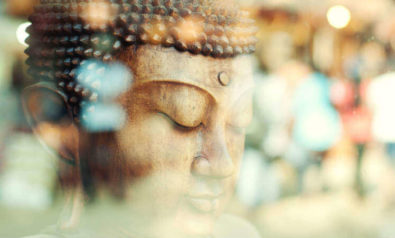Remember that “fan” is an abbreviation for “fanatic.”
My interest in celebrity worshipers began on July 17, 1999, when I turned on the news to hear a brief report about three very newsworthy events: meetings that might lead to peace in the Middle East, China threatening military intervention in Taiwan and the report that the Dow Jones had dropped nearly 200 points in a single day. These were events that might impact the lives of millions of people, but they were quickly passed over in favor of a report that dominated the news that evening and for several days to come. A handsome, rich young lawyer, who by most accounts was a genuinely nice person, had perished in a plane crash. He had passed the bar exam only after two failed attempts, and he had not distinguished himself in the legal profession. There must have been hundreds, if not thousands of well-loved and meritorious people worldwide who died at about the same time, but their deaths did not receive anywhere near the amount of attention as did that of John F. Kennedy, Jr. — a young man who was famous for being famous.
I started thinking about the insanity of heaping so much adulation on persons, who, for the most part, don’t really deserve it. Why should we idolize people just because they are better looking than we are, or they can act, sing or kick/throw/hit a spherical object better than the rest of us? There is an abundance of anecdotal evidence to suggest that many celebrities are no better (and sometimes much worse) than the rest of us when it comes to intelligent or laudatory behavior. See any tabloid for details. As former basketball star Larry Bird once put it, “I would not walk across the street to meet me.”
I began to wonder about the characteristics of persons who would stand in line for hours and pay an exorbitant price to see a performer of modest talent who will be largely forgotten in three years, supplanted by another performer of perhaps even lesser talent who will eventually suffer the same fate. Who are these people who would beg, borrow and steal to get an autographed photo of their favorite famed luminary?
Celebrity Attitude Scale
With the help of several bright young psychologists, I developed the Celebrity Attitude Scale (CAS) and a theoretical model to help explain how people get emotionally involved with their favorite celebrity. A decade and a half later there are at least 52 published studies in which the CAS has been used in an ongoing effort to learn more about people we call celebrity worshipers. The scale has been used in England, India, Malaysia and the Philippines in addition to the United States.
Here are some of the things we have learned. About one-third of the population over the age of 12 might qualify as celebrity admirers, based on their high CAS scores. Celebrity worship probably starts about puberty, and gradually peaks at about age 15. However, it declines very little as adolescents move into adulthood. There is some evidence that tastes change with age. Younger people tend to prefer actors, singers and athletes, in that order. Those three categories have accounted for about three-fourths of all the favorite celebrities chosen by young people. Authors, scientists, artists, and famous reality show persons fare poorly among the young, and politicians are rarely chosen. Eat your heart out, Donald Trump.
Older people also like actors and athletes, but are less likely than the young to choose singers, which makes sense inasmuch as popular songs generally target young audiences. Black college students score higher than white college students, with Hispanic and Asian American students falling in between. We are not sure why. To my surprise, we found that Filipinos score higher than Americans. One of my Filipino colleagues informed me that television, movies and singers are all quite popular there. We hypothesized that shy and lonely people would form strong parasocial relationships with celebrities in order to meet social needs, but collectively they score only slightly higher on the CAS than people who are neither shy nor lonely.
Religious skeptics (atheists and agnostics) score lower than strong religious believers on the CAS, which suggests to us that skeptics’ doubts about God may extend to the godlike wannabes that some of us worship. In a mock jury trial study, a hypothetical movie star on trial for murder was less likely to be convicted by college students who scored high on the CAS, as compared with those who scored lower. A few studies that have attempted to link celebrity worship with intellectual ability have generally shown that bright folks score a bit lower on the CAS, but attempts to determine why that is so have been unsuccessful. It has been argued elsewhere that celeb worshipers have a strong personal desire for fame themselves, and I am currently working with three other psychologists in an effort to determine the validity of that argument.
Arguably the most researched topic that social psychologists investigate is gender. Consequently, a large number of the studies using the CAS have searched for gender differences. The results overwhelmingly suggest that males and females are about equal in their attraction to a favorite celebrity. There is evidence that young females who score high on the CAS are somewhat dissatisfied with their body shape, suggesting that they may be comparing their bodies with the celebrity women they idolize. One study with surprising results showed that college men (but not women) who were strongly attached to a favorite celeb, were more likely to have eating disorders than those men who were lukewarm about their favorite celeb.
Fortunately, the vast majority of celeb aficionados are what we have come to call “entertainment/socials.” That is, they are attached to a favorite celeb primarily because he or she is entertaining and provides something to talk about with like-minded friends (“Wasn’t LeBron great in that game last night against the Warriors?”). They tend to be outgoing seekers of excitement, and one study showed that they frequently visit websites with multiple celebrities, while another showed strong participation in celebrity gossip blogs. With some exceptions, these folks appear to be reasonably normal.
Of somewhat greater concern is a minority of devotees who, we believe, pass through the entertainment/social stage to develop a much stronger bond with a favorite celebrity. They tend to agree with statements about being a soulmate with their favorite celeb, being obsessed with details about that prominent person’s life, and taking an intense, personal interest in everything their favorite celeb says and does. Our research on these folks, who we call “intense/personals,” reveals some alarming trends. “Intense/personals” tend toward neuroticism, as measured by a famous personality test, and depression and anxiety — which is related to neuroticism — by another famous personality measure. Furthermore, they tend to avoid stressful situations instead of solving the underlying problems that cause anxiety. Among adolescents with high scores on the intense/personal portion of the CAS, there is a tendency to feel insecure and emotionally distant.
The Next Level
A third, and perhaps even more problematic level of celebrity worship is eventually reached by a few persons who “graduate” from the second level. We use the term “borderline pathological” to describe these third-level individuals. They are characterized by feeling compelled to follow every aspect of their prominent person’s existence, and a stated willingness to do something illegal if asked by their favorite celebrity.
Furthermore, they tend to be uninhibited and focused on immediate concerns while ignoring future consequences. A recent study highlighted the link between CAS scores and intimate relationships. We found that persons who had adopted a needy, jealous lifestyle approach to their intimate partner were likely to score high on CAS levels two and three, and, generally speaking, high scores on these two problematic levels were associated with difficulties maintaining a satisfactory intimate relationship. Remember that “fan” is an abbreviation for “fanatic.”
Do borderline pathologicals sound like people who might stalk celebrities? Celebrity stalkers are actually rare, but we found that college students who scored high on both levels two and three were more likely than low scorers to endorse obnoxious fan activities, behaviors such as writing letters with sexual content and/or ambiguous threats to a favorite celeb and starting an argument with a celebrity at a public appearance about his/her personal life — conduct that most people would find repulsive.
To summarize the body of research that has been generated in the last decade and a half: The admiration of those who are typically chosen as celebrity favorites may not be justified, but if it serves as entertainment and it greases the wheels of social interaction, it is probably relatively benign. On the other hand, if you find yourself increasingly absorbed and addicted to your favorite famous person, especially if your obsession is causing grief for you and the most important persons in your life, then it is time to disconnect.
Consider investing time, money and energy to develop the skills you so admire in others. You may never be a great singer, a renowned actor or even a decent basketball player, but surely you can become better than you are now if you take lessons, get some coaching and practice.
Remember that most celebrities are people who may excel at one or two skills, but are just average or even subpar at something you can do well. There is a study suggesting that some famous people feel like they are not obligated to abide by the rules that govern the rest of society, so if you treat your friends and neighbors with respect and you don’t break any laws, you may already be a better human being than many of those notable nabobs whose pictures are habitually on the covers of the tabloids.
The views expressed in this article are the author’s own and do not necessarily reflect Fair Observer’s editorial policy.
Photo Credit: stefanoborsani
Support Fair Observer
We rely on your support for our independence, diversity and quality.
For more than 10 years, Fair Observer has been free, fair and independent. No billionaire owns us, no advertisers control us. We are a reader-supported nonprofit. Unlike many other publications, we keep our content free for readers regardless of where they live or whether they can afford to pay. We have no paywalls and no ads.
In the post-truth era of fake news, echo chambers and filter bubbles, we publish a plurality of perspectives from around the world. Anyone can publish with us, but everyone goes through a rigorous editorial process. So, you get fact-checked, well-reasoned content instead of noise.
We publish 2,500+ voices from 90+ countries. We also conduct education and training programs
on subjects ranging from digital media and journalism to writing and critical thinking. This
doesn’t come cheap. Servers, editors, trainers and web developers cost
money.
Please consider supporting us on a regular basis as a recurring donor or a
sustaining member.
Will you support FO’s journalism?
We rely on your support for our independence, diversity and quality.












